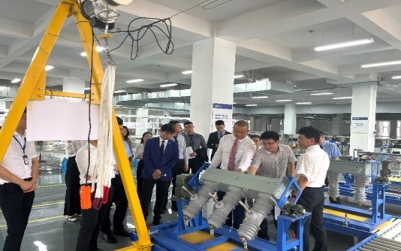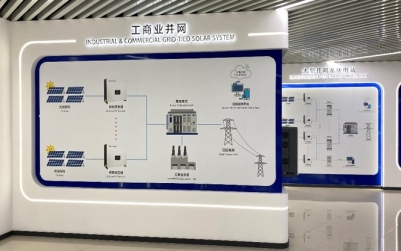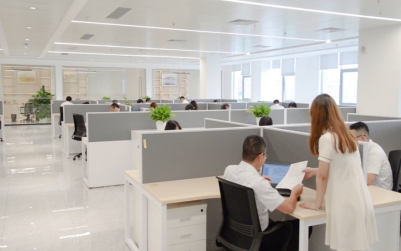Introduction:This case presents the successful implementation of a solar three-phase inverter system for a customer in Egypt. The customer, a commercial entity seeking to harness renewable energy, decided to install a solar power system as part of their sustainability initiatives. The project aimed to reduce their reliance on fossil fuels and lower overall energy costs. The solar three-phase inverter was an ideal solution due to its efficiency, reliability, and compatibility with the existing electrical infrastructure.
Client Background:The client, a prominent manufacturing company in Egypt, operates a large-scale production facility. With high energy consumption and rising electricity costs, the need to explore alternative energy sources became evident. The client's management recognized the potential of harnessing solar power to meet their energy requirements sustainably and approached our company for consultation.
Solution Overview:Our team conducted a thorough assessment of the client's energy demands, available space, and financial considerations. Based on these factors, we proposed a solar photovoltaic system with a three-phase inverter. The chosen inverter would convert the DC power generated by the solar panels into AC power suitable for the client's electrical infrastructure. The three-phase configuration ensures efficient power distribution and stability across the facility.
Implementation Process:
1. Site Assessment: Our engineers assessed the client's premises to determine the optimal location for the solar panel installation, considering factors such as sunlight exposure, shading, and structural integrity.
2. System Design: Using advanced software, we designed a solar power system that aligned with the client's energy needs and the available roof space. We carefully selected solar panels and a solar three-phase inverter that complied with international standards and suited the local climate conditions.
3. Installation: Our skilled technicians installed the solar panels and connected them to the three-phase inverter. They integrated the system with the existing electrical infrastructure, ensuring smooth and uninterrupted energy flow.
4. Testing and Commissioning: Following installation, our team conducted thorough testing and commissioning procedures to ensure the system's safety, efficiency, and compliance with local regulations.
Benefits and Results:
1. Cost Savings: The solar three-phase inverter system significantly reduced the client's dependence on the national power grid, resulting in substantial electricity cost savings in the long run.
2. Environmental Impact: By utilizing clean and renewable solar energy, the client achieved a significant reduction in carbon emissions, contributing to their sustainability goals and environmental stewardship.
3. Reliable Power Supply: The three-phase inverter ensured stable and consistent power distribution, enabling the client to maintain uninterrupted production processes and minimize downtime.
4. Scalability: The modular design of the solar power system allows for future expansion, accommodating the client's growing energy demands without major reconfiguration or additional investments.
Conclusion:The successful implementation of a solar three-phase inverter system allowed our Egyptian customer to generate clean and sustainable energy, reduce costs, and enhance their environmental performance.
This case study showcases the versatility and effectiveness of solar power as an alternative energy solution, particularly when coupled with advanced three-phase inverters.




